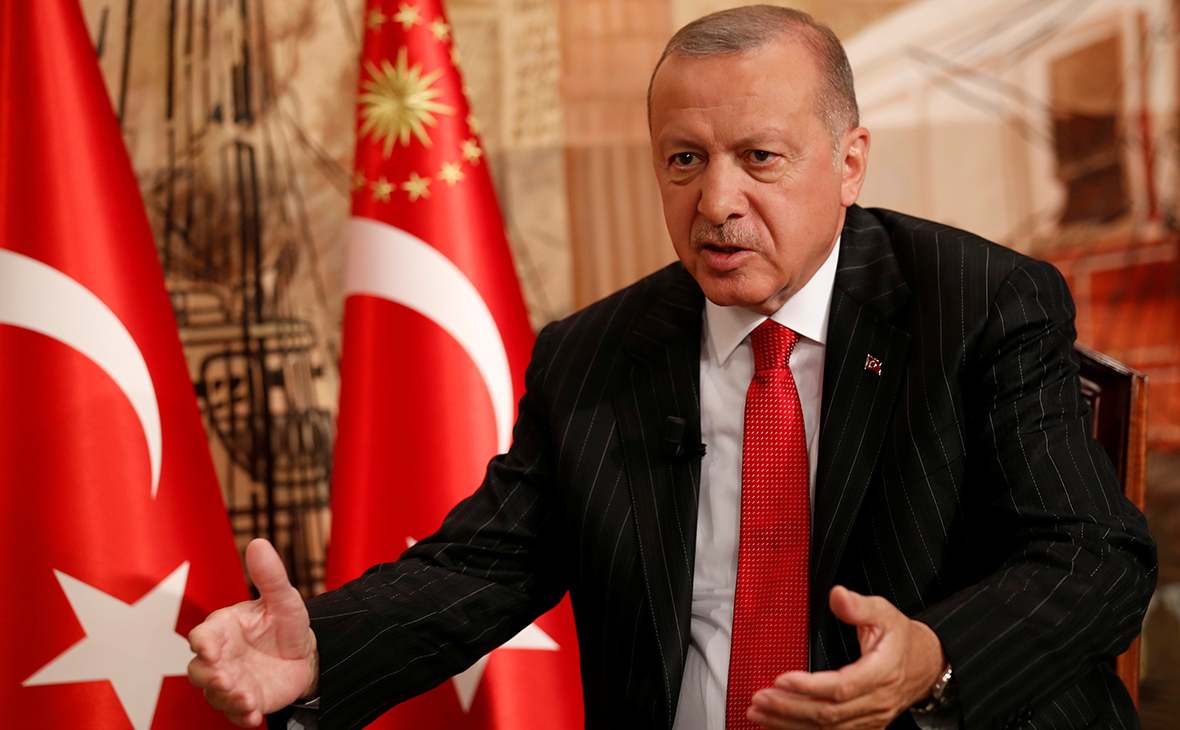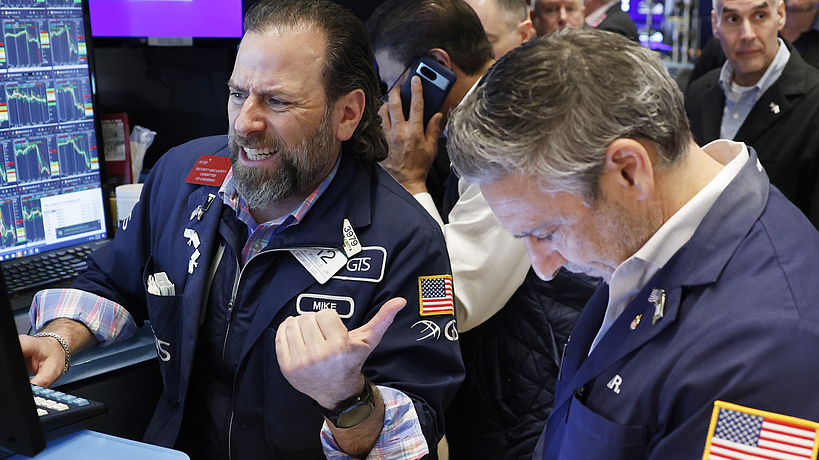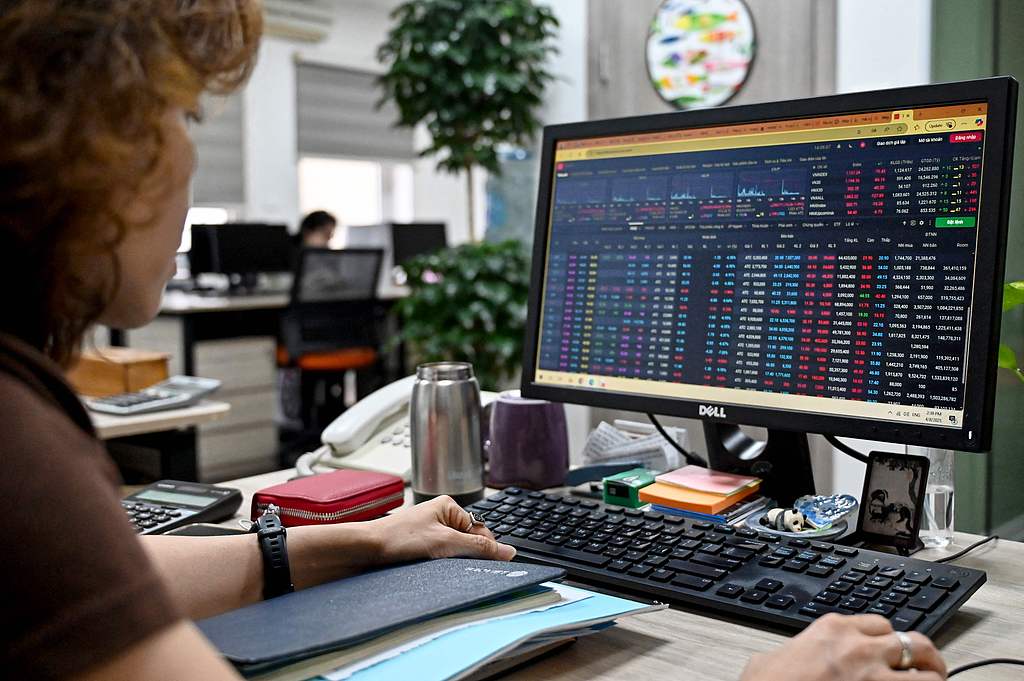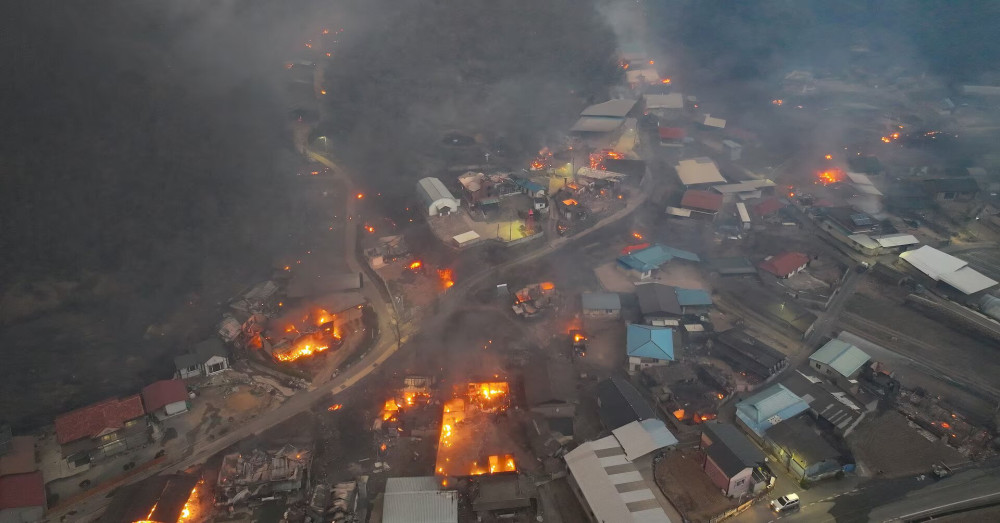Дэлхий дахинд
Эрдоган: Турктэй эв нэгдэлтэй байал Финлянд, Шведийг НАТО-д элсэхийг дэмжинэ

Хельсинк, Стокгольм хоёр аюулгүй байдлын талаар Анкаратай эв нэгдэлтэй байх нөхцөлд Финлянд, Швед улсуудыг НАТО-д элсэхийг Турк улс дэмжинэ гэж Туркийн Ерөнхийлөгч Тайип Эрдоган Умард Атлантын цэргийн эвслийн ерөнхий нарийн бичгийн дарга Йенсом Столтенбергтэй утсаар ярих үеэрээ мэдэгдсэн байна.
“Хэрэв Швед, Финлянд улсууд ялангуяа терроризмтой тэмцэх үндсэн асуудлуудаар Турктэй ижил байр суурьтай байгаагаа ил тод илэрхийлэх юм бол энэ хоёр улсыг НАТО-д элсэхэд Анкара татгалзах зүйлгүй” гэж Эрдоган хэлснийг Gazete Duvar хэвлэл иш татжээ.
Туркийн тэргүүн Турк улс “эвслийг нээлттэй хаалганы бодлого баримталж байгааг ил тод дэмжиж байгаа” гээд ганцхан Швед, Финляндын гишүүнээр элсэх гэсэн өргөдлийн хариу нь “Туркийн үндэсний аюулгүй байдлын ашиг сонирхолтой” шуу хамааралтай гэсэн байна.
Финлянд, Швед улсуудыг НАТО-д элсэхийг Турк улс эхнээс нь л татгалзаж байгаа тухай Financial Times хэвлэл өмнө нь мэдээлж байсан юм. Энэ хоёр улс Туркт хориглосон Курдистаны ажилчны намын төлөөлөгчидтэй холбоотой байдаг болохоор Финлянд, Швед улсуудыг гишүүнээр элсүүлэхэд Анкара “за” гэж хэлж чадахгүй гэж Эрдоган мэдэгдэж байсан. Хэрэв Турк улс энэ хоёр орныг НАТО-д элсэхийг зөвшөөрөх юм бол “аюулгүй байдлын байгууллага үгүй болж харин террористуудын олон төлөөлөгч орогнох газар болно” гэнэ. НАТО-гийн бүх гишүүн улс зөвшөөрөхгүй юм бол аль нэг улсыг эвсэлд элсүүлэх боломжгүй болно.
ОХУ-ын зүгээс Украинд явуулж байгаа цэргийн тусгай ажиллагааны улмаас Финлянд, ШВед улсууд олон жилийн туршид баримталж ирсэн төвийг сахих бодлогоосоо татгалзаж Умард Атлантын эвсэлд нэгдхээр өргөдлөө өгөөд байгаа юм. Скандинавын энэ хоёр орныг өрөийн эгнээнд нэгтгэхэд баяртай байна, аль болох хурдан элсүүлэх нөхцөлөөр хангана гэж НАТО-гийн тэргүүн Йенс Столтенберг мэдэгдсэн.

Дэлхий дахинд
The U.S. tariff tantrum: A self-defeating trade war

Editor’s note: Xin Ping is a commentator on international affairs, writing regularly for Xinhua News Agency, CGTN, Global Times, China Daily, etc. The article reflects the author’s views and not necessarily those of CGTN.
Washington’s latest tariff blitzkrieg – slapping “universal” levies on over 180 nations and regions – is setting things on fire at home.
The moment the executive order was signed, U.S. markets went into freefall: the Dow plunged nearly 4 percent, Apple and Nike stocks nosedived, and $6.4 trillion vanished from Wall Street in two days.
This isn’t economic policy. It’s economic arson.
The art of self-sabotage
Will tariffs bring manufacturing home? Despite years of arm-twisting, American tech giant Apple still works with 94.5 percent of its suppliers being overseas.
Apple isn’t an outlier. The semiconductor industry is facing obstacles in reshoring back to the U.S. as well. Intel has paused its Arizona factory. TSMC is delaying U.S. production. The problems hindering “made in America” are systemic and may only be addressed through a broad and profound economic restructuring. Tariffs won’t magically resurrect dead industries; they only inflate prices for already-struggling consumers.
The U.S. tariff spree, unleashed in the name of “America First,” is in fact a masterclass in shooting oneself in the foot. U.S. farmers will be hard hit. In the aftermath of the 2018 China tariff, while U.S. soybean exports eventually rebounded, the farming community suffered irreparable damages: Midwest farm bankruptcies spiked 30 percent, wiping out generations of family farms. Today’s “Tariff 2.0” risks repeating history – but with higher stakes.
China’s counterpunch
Beijing has been defending itself with precise actions, hitting back with matching levies. But its market remains open to others. Germany’s automakers, for instance, now sell more cars in China than at home. ASEAN’s durians and lobsters enter Chinese markets tariff-free under RCEP – a stark contrast to America’s “walled garden” approach.
As China’s commerce ministry stated: “Bullying tactics won’t work. We defend rules, not whims.” Similar tactics have failed before. When the U.S. tried weaponizing small-parcel exemptions to target Chinese goods, U.S. retailers revolted, as 60 percent of affected imports are everyday essentials for low-income households.
Allies: from partners to prey
American allies are not spared either, and their response has also been strong. The EU is poised to approve retaliatory measures. France is warning against “suicidal trade wars.” German industries are lobbying Brussels to hit back harder. Japan is calling the moves “deeply regrettable.”
In Southeast Asia, the irony is thicker than durian pulp as countries like Vietnam face 46 percent tariffs but remain trapped supplying components to U.S. tech giants. An economist in Hanoi reveals the reality: “Trump wants us to be his factory, but not his competitor. That math doesn’t add up.”
The U.S. tariff crusade isn’t just failing – it’s uniting the Global South against Washington. The U.S. only accounts for around 15 percent of global trade. The remaining 85 percent is made up by the rest of the world – including China – and it will not stand idly by and watch the international trade system, the very thing that fostered global prosperity for decades, destroyed by self-serving political motivations.

A woman looks at an electronic stockboard on her computer at a trading company in Hanoi, Vietnam on April 8, 2025. /CFP
The ghost of Smoot-Hawley
History has long given its verdict on tariffs. The 1930 Smoot-Hawley tariffs turned a recession into the Great Depression. The déjà vu is uncanny: U.S. steel tariffs briefly boosted producers but killed 75,000 downstream jobs. American icon motorcycle manufacturer Harley-Davidson was forced to shift production overseas to avoid costs. “Made in America” has become “priced out of America.”
Those in Washington are preaching “short-term pain for long-term gain.” Tell that to the 27 U.S. textile mills shut down in the past 20 months, or the single mom paying 17 percent more for Walmart clothes. Some on Reddit have put it quite well: “Tariffs are taxes on the poor.”
Epilogue: The unlearned lesson
The White House insists this is “historic” – and they’re right. Not since the 1930s has the U.S. so recklessly weaponized trade. But the world has changed: China is deeply integrated into global supply chains, the EU makes its own decisions, and ASEAN won’t ditch prosperity for geopolitics.
The clock is ticking. Every tariff tweet coming from Washington is shredding U.S. credibility. Every market plunge erodes the White House’s “strong economy” narrative. And America’s isolation deepens with every trade deal other countries make on lowered tariffs, such as those between China and ASEAN and European countries.
In the end, it’s not just about the economy. America is turning its back on the world. The path it has chosen is a solitary one.
(If you want to contribute and have specific expertise, please contact us at opinions@cgtn.com. Follow @thouse_opinions on X, formerly Twitter, to discover the latest commentaries in the CGTN Opinion Section.)
Дэлхий дахинд
БНСУ даяар галын нөхцөл байдал ноцтой түвшинд хүрснийг зарлалаа

Дэлхий дахинд
Сөүл хотод авто зам цөмөрч мотоциклтой иргэн унажээ

Өчигдөр буюу даваа гарагт Сөүл хотод авто зам цөмөрч, мотоциклтой иргэн унасан байна. Одоогоор тус иргэнийг аврах ажиллагаа үргэлжилж байгаа аж.
Орон нутгийн цагаар өчигдөр орой 6 цагийн үед Гандун дүүрэг дэх бага сургуулийн ойролцоох авто зам цөмөрч, бараг 20 метрийн өргөнтэй нүх үүссэн байна.
Тус нүх зургаан эгнээтэй замын дөрвийг нь хамарч байгаа бөгөөд нэмж томрох эрсдэлтэй байгаа аж. Улмаар Сөүл хотын захирагч яаралтай арга хэмжээ авахыг үүрэгджээ.
Одоогоор зам цөмөрсөн шалтгааныг тодруулахаар ажиллаж байна.
Гэхдээ албаныхны урьдчилсан байдлаар үзэж буйгаар зам цөмөрсөн шалтгаан нь замын доорх ус дамжуулах хоолой хагарснаас үүдсэн байж болзошгүй гэв.
Осол гарсан замын доор метроны есдүгээр шугамын өргөтгөлийн ажил мөн хийгдэж байжээ.






















































































